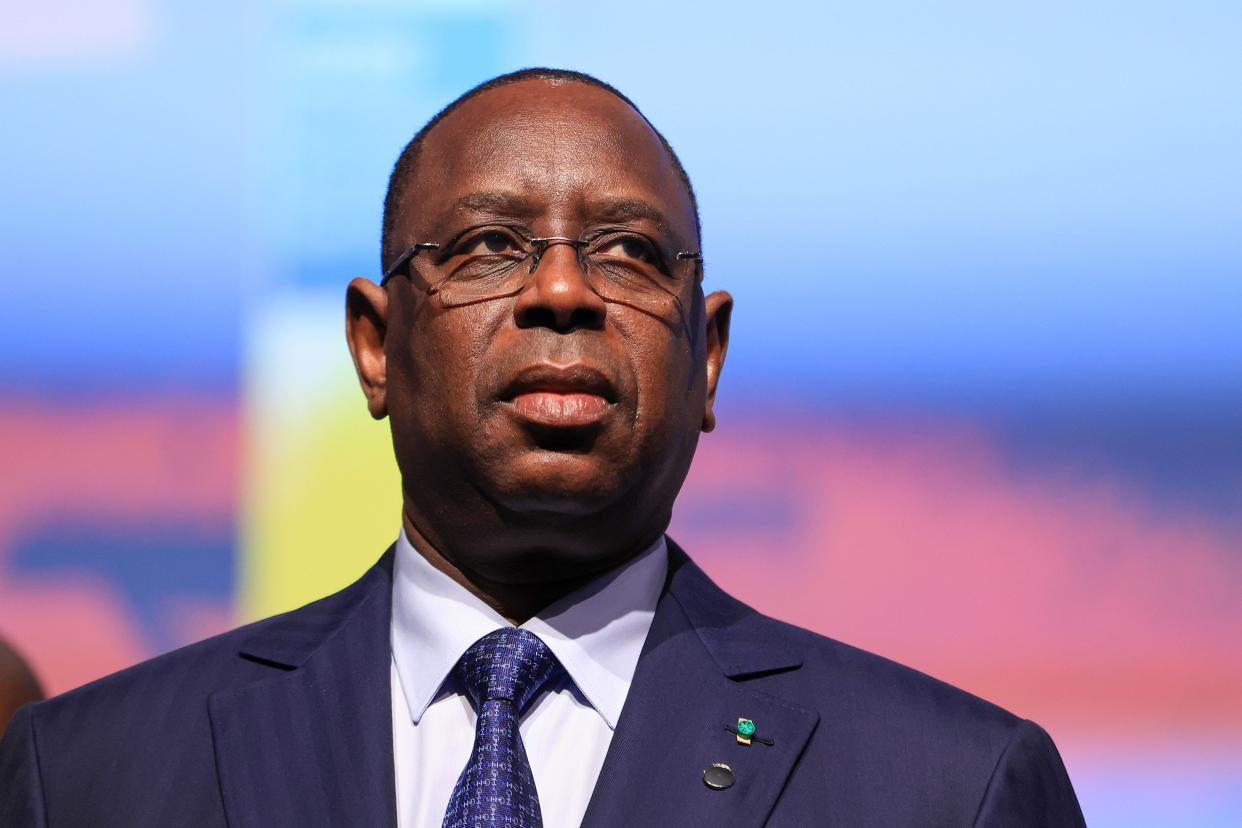Senegal Bonds Sink After Presidential Election Is Postponed

(Bloomberg) -- Senegal’s eurobonds fell sharply after President Macky Sall postponed this month’s presidential elections indefinitely and the authorities cut mobile internet access amid a constitutional crisis.
Most Read from Bloomberg
Xi to Discuss China Stocks With Regulators as Rescue Bets Build
Wall Street Snubs China for India in a Historic Markets Shift
China Tightens Some Trading Restrictions for Domestic and Offshore Investors
Police reinforced security in the capital on Monday, a day after clashes with opposition supporters on the streets of Dakar that led to the arrest of officials including former Prime Minister Aminata Touré and presidential candidate Anta Babacar Ngom. The government cut access to mobile internet services because of “hateful and subversive” messages being posted online that are jeopardizing public order, the Communication Ministry said.
The West African nation’s dollar bonds due in 2033 fell 3.6% to 83.77 cents on the dollar by 1:54 p.m. in London, while its 2037 debt slumped 4.7% to 69.84.
It’s the first time an election has been postponed in Senegal, which is considered one of Africa’s more stable democracies. The delay raises concerns that political instability may increase in West Africa, where a series of military coups over the past three years has toppled the governments of four countries.
The uncertainty in Senegal may lead investors to demand an additional premium on the risk of investing in the country, Barclays Plc analyst Michael Kafe said in a research note. Senegal’s bonds have outperformed sub-Saharan African peers since November, likely on expectations that a smooth election process would be followed by a “positive fundamental trajectory,” he said.
“While it seems premature to fully discard such a positive trajectory, uncertainty has risen,” Kafe said. “We believe that, at least in the short-term, this will need to be reflected in additional political risk premia in Senegal spreads.”
Lack of Support
Lawmakers met on Monday to consider a proposal to amend the constitution and enable Sall to extend his mandate for six months. The constitution currently requires elections to take place at least 30 days before the president’s mandate expires.
Sall, whose final term ends on April 2, said he delayed the vote to allow an investigation by parliament into how the nation’s Constitutional Council determined who can stand in the election. The probe was initiated after the party of opposition leader Karim Wade — the son of Sall’s predecessor, Abdoulaye Wade — accused two judges of corruption and blamed them for his disqualification from the race.
Some members of the ruling Benno Bokk Yakaar coalition broke ranks and backed the call for an inquiry. That exposed a lack of support within the coalition for Prime Minister Amadou Ba, Sall’s handpicked successor, and added to concerns that he would struggle to compete against the main opposition candidate: Bassirou Diomaye Faye, who has the backing of jailed opposition leader Ousmane Sonko.
“Our reading is that Sall became convinced that Ba was going to lose to Bassirou Diomaye Faye, the radical running as Sonko’s stand-in, and chose to postpone the election to play for time,” François Conradie, lead political economic at Oxford Economics Africa, said in a note. “Ba was contentious as a candidate within the ruling Benno Bokk Yakaar coalition.”
Fitch Group’s BMI unit said last month Sonko, 49, would likely win the ballot if he was allowed to run. Sonko was disqualified from the race last month after he was convicted of libel for insulting the tourism minister and handed a six-month suspended prison sentence. His party, Pastef les patriotes, has been dissolved.
“This is a constitutional coup d’etat,” Yassine Fall, Pastef’s vice president for international affairs, said in a response to questions sent by text message. “The constitution is clear. The president’s mandate cannot be extended under any circumstances.”
Senegal is on the cusp of becoming a significant oil and gas producer with projects involving BP Plc, Kosmos Energy Ltd. and Woodside Energy Group Ltd. set to go online this year. The International Monetary Fund forecasts Senegal’s economy will expand 8.8% this year, making it one of the fastest-growing economies in Africa.
--With assistance from Yinka Ibukun, Paul Burkhardt and Colleen Goko.
(Updates bonds in third paragraph, adds analyst comment from fifth paragraph)
Most Read from Bloomberg Businessweek
©2024 Bloomberg L.P.

 Yahoo News
Yahoo News 

